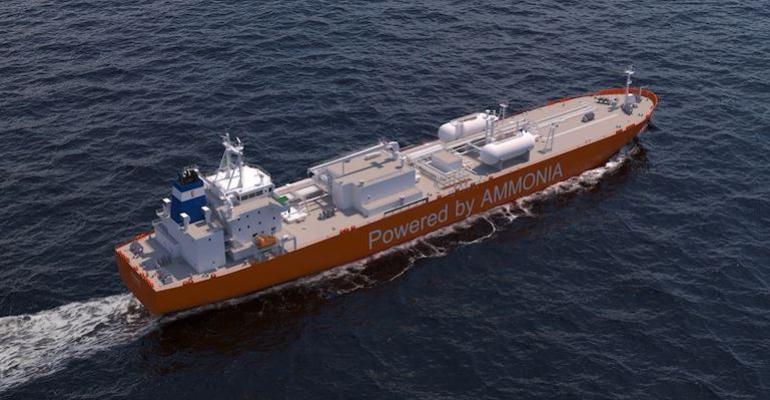In its report – ‘Sustainable fuels for shipping by 2050 – the 3 key elements of success’ – the Helsinki-based company declared that decisive emissions policies such as the inclusion of shipping in the EU Emissions Trading System (ETS) from January this year, and FuelEU Maritime (FEUM) from 2025, will double the cost of marine fossil fuels by 2030. By 2035, the price gap between sustainable and conventional fuels could have closed completely.
Even though shipping is the most efficient way of transporting goods and carries some 80% of world trade, Wärtsilä estimates that it emits 2% of global emissions, equivalent to those of Japan. Without action, this could increase by 45% by mid-century, the company warned.
Related: Regulatory compliance driving wind propulsion demand
The IMO’s non-binding revised target of achieving net-zero emissions by 2050 could reduce 27% of emissions through decarbonisation strategies such as fuel efficiency measures. But sustainable fuels will provide the essential means by which the remaining 73% can be eliminated, and radical action is needed to scale them, according to the report.
Shipowners face an uncertain marine fuel future and won’t commit to a fuel today that is expensive, produced only in small quantities, and could be overtaken by another fuel that scales more quickly and proves to be cheaper. Suppliers, meanwhile, cannot invest in new fuel infrastructure without clear demand signals, Wärtsilä said.
Related: No return journey from EU ETS
The company estimates that sustainable fuels will be three-to-five times more expensive than today’s fossil fuels in 2030. Strategies like ETS and FEUM will close the gap. Policymakers should:
- Maximise certainty: set an internationally agreed science-based pathway for phasing out fossil fuels from the marine sector, in line with IMO targets;
- Boost cost competitiveness: adopt a global industry standard for marine fuel carbon pricing;
- Collaborate: increase global collaboration between governments on the innovation and infrastructure necessary to delivery sustainable fuels at scale worldwide.
Meanwhile, more collaboration between stakeholders both in and outside the maritime sector is necessary, the company said, while individual companies should not hold back on their own initiatives.
Roger Holm, President of Wärtsilä Marine and EVP of Wärtsilä Corporation, commented: “Achieving net-zero in shipping by 2050 will require all the tools in the toolbox, including sustainable fuels … Policy in Europe is showing just how impactful action at the international level can be, closing the cost gap between fossil and low-carbon fuels for the first time.
“If there is one take-away from our report, it is that smaller operators need not feel powerless. They have a major role in accelerating towards net-zero emissions shipping. Taking steps to improve fuel efficiency and invest in fuel flexibility can deliver immediate returns, reducing both emissions and operating costs. But action must be swift – we have the lifecycle of just a single vessel to get this right.”
Reference : https://www.seatrade-maritime.com/sustainability-green-technology/wartsila-says-fuel-price-parity-possible-2035

